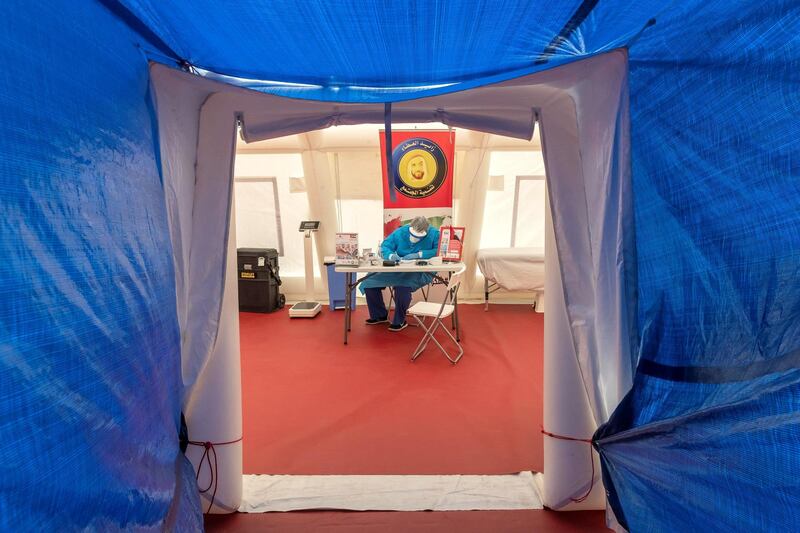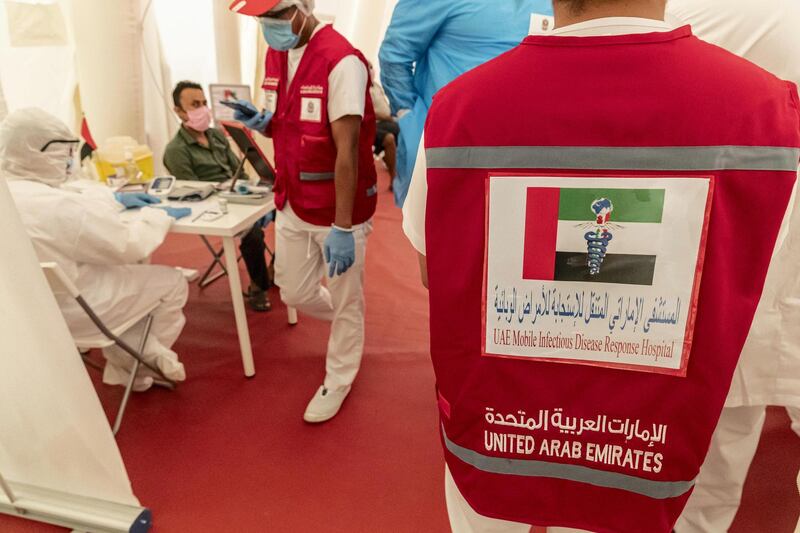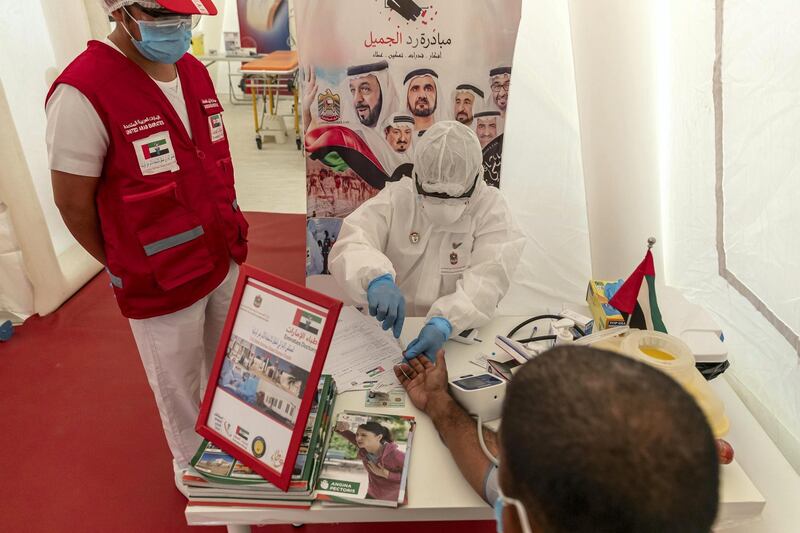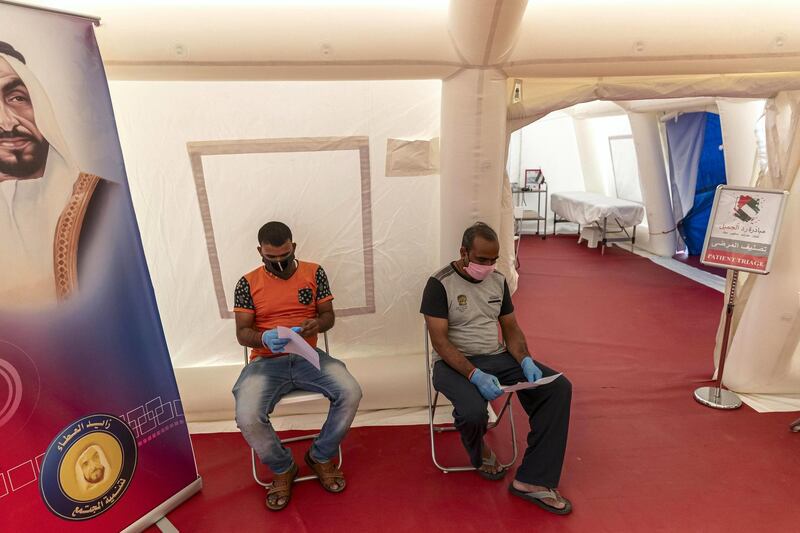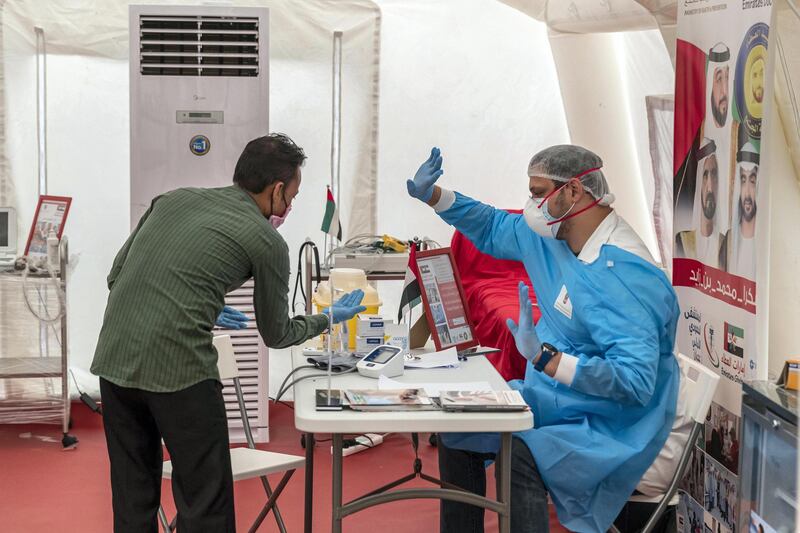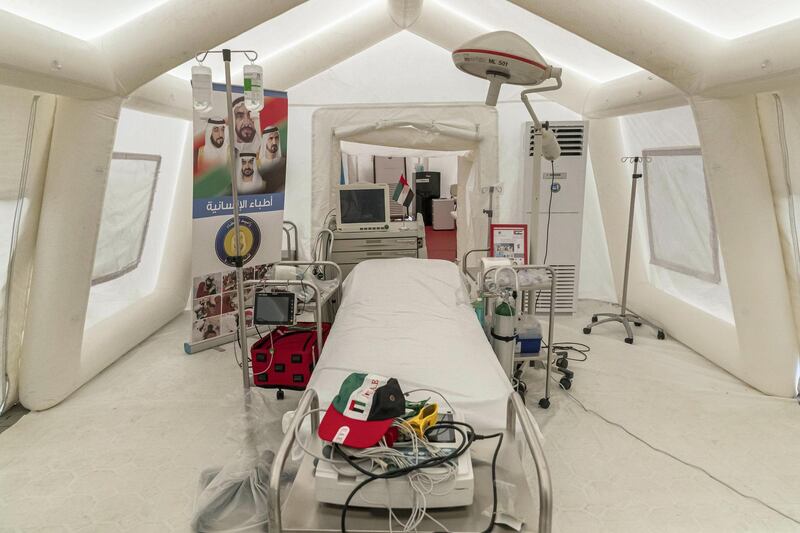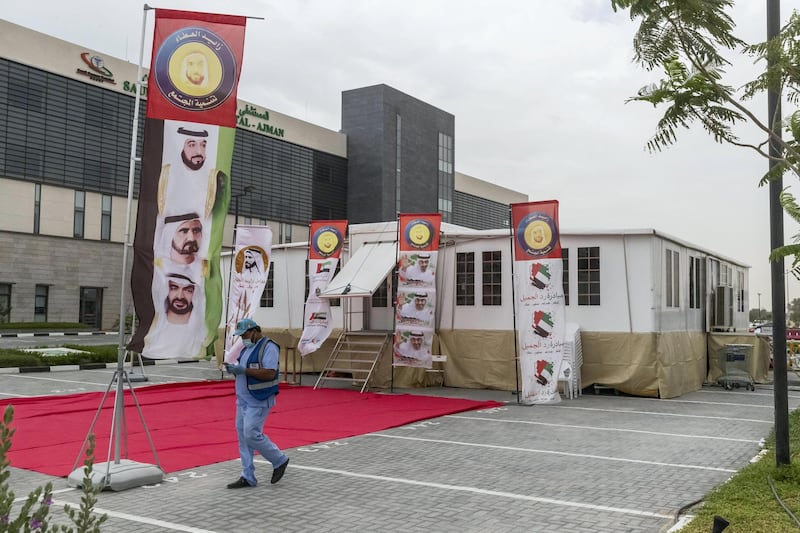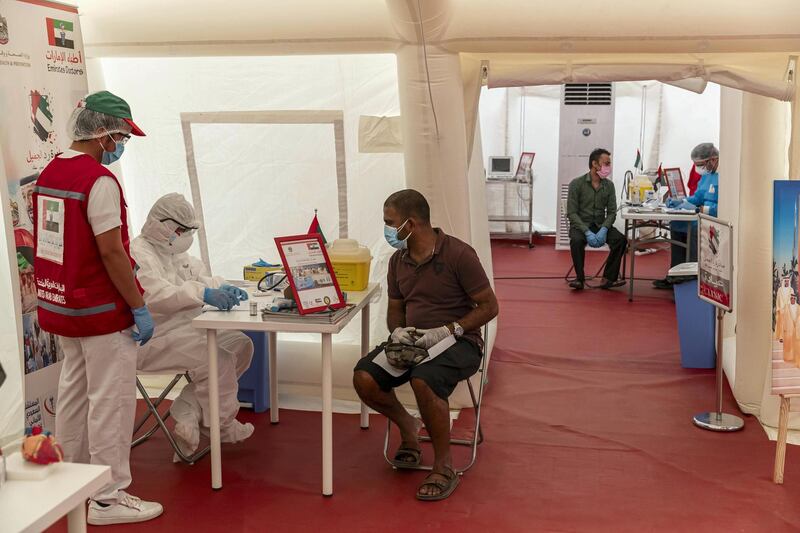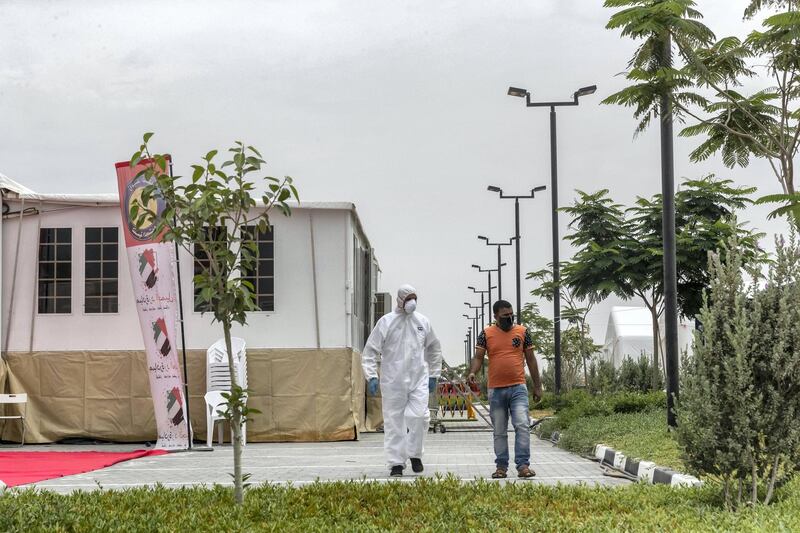A new field hospital has been opened in Ajman as part of efforts to increase patient capacity in the emirate.
Officials said the site would initially have 50 beds, expanding to 300 in the coming weeks.
The centre is currently being run by 50 medical staff who can offer free coronavirus testing.
It is also equipped with two triage rooms, an intensive care unit and an isolation ward.
“The field mobile hospital became operational two weeks ago to fight any surge in Covid-19 cases and prevent a spread of the virus,” said Dr Reem Osman, chief executive of the UAE’s Saudi German Hospital Group.
The UAE government continues to expand and develop its response to the coronavirus pandemic.
Health authorities in Dubai have transformed parts of the city’s World Trade Centre into a 3,000-bed hospital to help with any potential surge in cases.
The centre is one of two field hospitals opened in Dubai and will boost the emirate’s capacity to 5,000 beds.
Ajman’s field hospital was launched as part of a collaboration between the Ministry of Health, the Zayed Giving initiative and Saudi German Hospital.
The Zayed Giving initiative is a UAE philanthropic organisation, while Saudi German Hospital is one of the largest private hospital groups in the UAE.
As of April 20, the Emirates has recorded 6,781 cases of coronavirus in the country, contributing to 41 deaths. More than 1,280 patients have recovered from the infection.
Adel Al Shamry, chief medical officer of Ajman’s field hospital, which has been set up next to Saudi German Hospital in the emirate, said his team would also operate eight mobile clinics.
He revealed some of the medical staff had volunteered their expertise, determined to help provide the best possible care to patients.
“We also have eight mini mobile clinics that visit heavily populated areas in Ajman to conduct tests,” he said.
“For example, if we have large groups of people to be tested, instead of asking them to come to the field hospital, we send the clinics to them.
“This way, we prevent crowding and maintain safety. We also have medical staff members offering a telemedicine service.”
